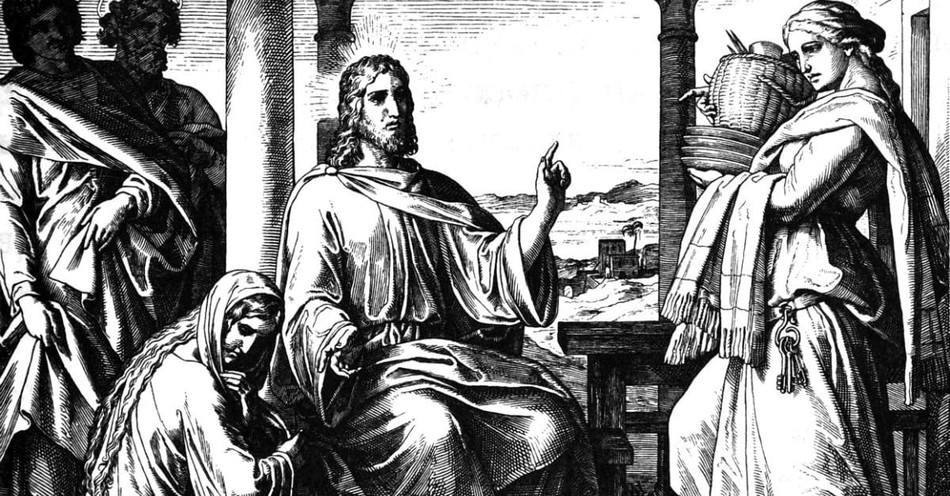You probably haven’t heard much about Holy Tuesday when people talk about Jesus’ last week in Jerusalem. This day may not have any of the exciting moments that happened at the end of the week, but it shows hints of the coming danger.
Get your free Holy Week Prayer and Scripture Guide to reflect on the meaning and importance of Christ's death and resurrection.
Where Does the Bible Talk about Holy Tuesday?
The week leading up to the Resurrection of Jesus Christ is called Holy Week. It is only fitting that the Tuesday before the crucifixion is called “Holy Tuesday.” Each day of the week is significant for Christians. Historians collaborate that on Palm Sunday, Jesus made his triumphant entry into Jerusalem on a donkey. Either Sunday or the next day (Holy Monday), Jesus cleansed the temple. Either way, Jesus went to spend the night in Bethany, and went back into Jerusalem the next day. As he was walking to Jerusalem, Jesus cursed a fig tree:
And when he saw a fig tree in the way, he came to it, and found nothing thereon, but leaves only, and said unto it, Let no fruit grow on thee henceforward for ever. And presently, the fig tree withered away. (Matthew 21:19)
Later, Jesus taught the disciples a lesson regarding the fig tree’s barrenness (Matthew 21:20-22). We see the story of the fig tree also in Mark 11:20-25. Along with performing this miracle, Jesus did a lot of preaching in Jerusalem on Holy Monday and Holy Tuesday.
Do We Know What Jesus Preached on Holy Tuesday?
In Jerusalem, Jesus preached about faith. He used the barren fig tree as an example. His disciples saw what he did to the fig tree and marveled. In Matthew 21:21-22, Jesus said unto them, “Verily I say unto you, If ye have faith, and doubt not, ye shall not only do this which is done to the fig tree, but also if ye shall say unto this mountain, Be thou removed, and be thou cast into the sea; it shall be done. And all things, whatsoever ye shall ask in prayer believing, ye shall receive.”
If you look at Mark 11:20-25, you see mention of the fig tree again. You also see Jesus mention the prayer of faith:
“Therefore I say unto you, What things soever ye desire, when ye pray, believe that ye receive them, and ye shall have them. And when ye stand praying, forgive if you have ought against any: that your Father also which is in heaven may forgive, your trespasses.” (Mark 11:24-25)
He also warns that if we do not forgive, neither will God forgive us.
What Did Jesus Say about the Religious Leaders on Holy Tuesday?
While Jesus was preaching in Jerusalem, the religious leaders (Pharisees, Sadducees, and other groups) listened. Some of Jesus’ teachings targeted them, critiquing their actions or attitudes.
Jesus shared a parable of the householder. Read the entirety in Mark 12:1-11. The religious leaders of the day were not happy about this parable because they felt it was about them. The parable begins:
“A certain man planted a vineyard, and set a hedge about it, and digged a place for the winefat, and built a tower, and let it out to husbandmen, and went into a far country. And at the season, he sent to the husbandmen a servant that he might receive from the husbandmen of the fruit of the vineyard.” (Mark 12:1-2)
The story discusses how the servants came to collect for the owner, and some were beaten and some killed. The owner eventually sent his son, whom he knew they would respect. The husbandmen did not. They decided to kill the son so there would be no heir and the inheritance would be theirs (Mark 12:3-11). In verse nine, Jesus said, “What shall therefore the Lord of the vineyard do? He will come and destroy the husbandmen and will give the vineyard unto others.”
Finishing this parable, Jesus told the crowds, “And have ye not read this scripture; The stone which the builders rejected is become the head of the corner: This was the Lord’s doing, and it is marvellous in our eyes?” (Mark 12:10-11).
The religious leaders were angered because they knew the parable was about them: They were the husbandmen thrown out of the farm for their behavior, replaced by others. Jesus quoting the Scripture about the Lord making a rejected stone into a vital part of a building (Psalm 118:22-23) was also about replacement. The leaders sought to arrest Jesus but feared the people.
Why Did the Religious Leaders Try to Trap Jesus?
While the religious leaders couldn’t arrest Jesus, they tried to entrap him. They sent certain Pharisees and Herodians to catch him in his words.
Look at Mark 12:13-17. They tried to trip Jesus up and wanted to catch him not paying tribute to Caesar. They asked him whether it was lawful to give unto Caesar or not. He knew they were being hypocrites and responded, “Why tempt ye me? Bring me a penny, that I may see it” (Mark 12:15). When they brought the coin, Jesus asked them whose name was on it. They responded, “Caesar.” Jesus responded by saying, “Render to Caesar the things that are Caesar’s and to God the things that are God’s” (Mark 12:17). Of course, they were amazed at his answer.
Next, the Sadducees came to him and asked about the resurrection (they did not believe in a final resurrection). They posed the instance of a man who was married and then died and left a widow without children. According to Moses’ teaching, it was customary for the brother to take the woman to be his wife, to continue the family line. If this happened a few times, with each brother dying and not leaving any children and the next man marrying her, who would be her husband in the resurrection? (Mark 12:18-23)
Jesus told them that “they erred in not knowing the scripture for when they rise from the dead, they neither marry, nor are given in marriage, but are like the angels in heaven.” (Mark 12:24-25). After Jesus responded to a teacher who asked which was the greatest commandment, none of the religious leaders asked any more questions.
What Wars and Rumors of Wars Was Jesus Talking about?
As he finished his teaching, Jesus pronounced woes upon the Pharisees. He had tolerated a lot of their questioning, spoken against their hypocrisy, and mentioned the God-sent prophets that their forefathers had stoned. He ended by saying, “Behold, your house is left onto you desolate” (Matthew 23:38). As Jesus was leaving the temple for the day, Matthew 24 says that his disciples were admiring the buildings. Jesus told them, “See ye not all these things? verily I say unto you, There shall not be left here one stone upon another, that shall not be thrown down.” (Matthew 24:2)
Jesus and his disciples left Jerusalem and went to the Mount of Olives. His disciples wanted to know when that destruction would transpire, what would happen before his coming (Matthew 24:3). Jesus told them that many would come in his name and deceive many. He told them they would hear of “wars and rumors of wars” but not to fear. These things must come, but the time is not yet. Jesus described how nations would rise against nations and kingdoms against kingdoms. There would be famine, pestilences, and earthquakes in many places. This would all be just the beginning of conflicts (Matthew 24:8).
Jesus warned that many would falsely predict his coming (The KJV Study Bible, Barbour Publishing, 2011). He didn’t want his disciples to be misled by wars, earthquakes, and other events. False prophets would use these events to lure people in with their teaching. He encourages them to endure these events and keep their faith.
Many scholars have said that Jesus was speaking about two events in Matthew 24. Some of what he described is the Romans sacking Jerusalem in 70 AD, a time of many conflicts and false Messiahs, and shocking destruction. Later, he describes “wars and rumors of wars” that will come at the very end of days. In either case, his message is the same: don’t be deceived by false prophets who will use the sign of the times to lure people to follow them.
What Can We Learn from Holy Tuesday?
Holy Week, including Holy Tuesday, is a vital reflection time for Christians. Take this time to read about all that Jesus suffered even before he was crucified and how the Pharisees, Sadducees, and other religious leaders day constantly sought to entrap him.
Even though Jesus knew this was the week of his death and told his disciples he would soon be betrayed and crucified (Matthew 26:2), he continued to teach. Even for the Son of God, this was a tough pill to swallow. All the emotions that would warrant someone facing death were apparent. Use the week before Easter to reflect on the Scriptures and see what the Lord said until his crucifixion. It is shocking how relentless the religious leaders of the day were toward Jesus. It gives you even more appreciation that God cared enough for us to let His Son go through shame, humiliation, testing, betraying, crucifixion, and death to save our souls. Is it any wonder that Easter Sunday has one of the largest church attendance rates in America? People press their way to the house of God to show reverence for what God did and for who Jesus is: our Saviour.
Photo Credit: Unsplash

Learn more about the meaning and significance behind the Easter holiday and Holy Week celebrations:
What is Lent? and When Does Lent Start?
What is Ash Wednesday? and When is Ash Wednesday?
What is Palm Sunday?
What is Maundy Thursday?
What is Good Friday? and When is Good Friday?
What is Holy Saturday?
What is Easter? and When is Easter Sunday?
Easter Bible Verses
The Resurrection of Jesus
Easter Prayers









